Quan Shui Wet Market: Cooking videos, online sales and modern flagship: How hawker brothers shake up family’s wet market business
First published in The Straits Times on 27 August 2024.
By leveraging Enterprise Singapore's heartland business initiatives, Quan Shui Wet Market has expanded its product range, connected with younger customers and increased its revenue.
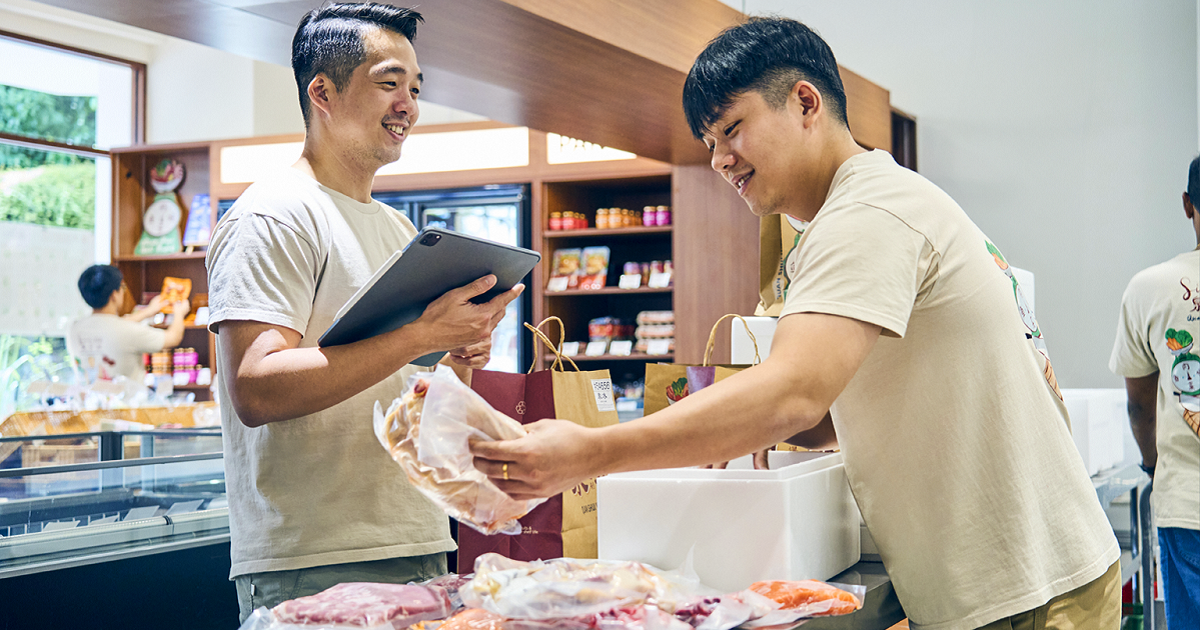
In the 2000s, Mr Neo Jun He’s family used to own 15 wet market stalls selling fresh pork. Today, only about half remain.
“Wet markets are a sunset industry,” says the general manager of Quan Shui Wet Market wistfully. The business – originally called Quan Shui Fresh Pork and helmed by his mother even to this day – was rebranded to Quan Shui Wet Market in 2022 when it expanded its offerings to include other fresh produce.
“People no longer shop as much at such markets, and it’s increasingly difficult to find people who are willing to take up roles to sell wet market goods,” says Mr Neo, referring to the fresh meats, seafood, vegetables and other perishables found at neighbourhood markets.
To make matters worse, the Covid-19 pandemic and Singapore’s safe-distancing measures in 2020 further impacted the family’s business, leaving them stranded with hundreds of kilogrammes of unsold pork in their inventory.
But the crisis gave birth to opportunity. “We had to act quickly,” recalls the 32-year-old ex-teacher. “If not, the meat we had ordered would have gone bad.”
Mr Neo and his family brought their business online by starting with its Facebook page.
Through the social media platform, they received a few daily orders from their followers and made the deliveries themselves.
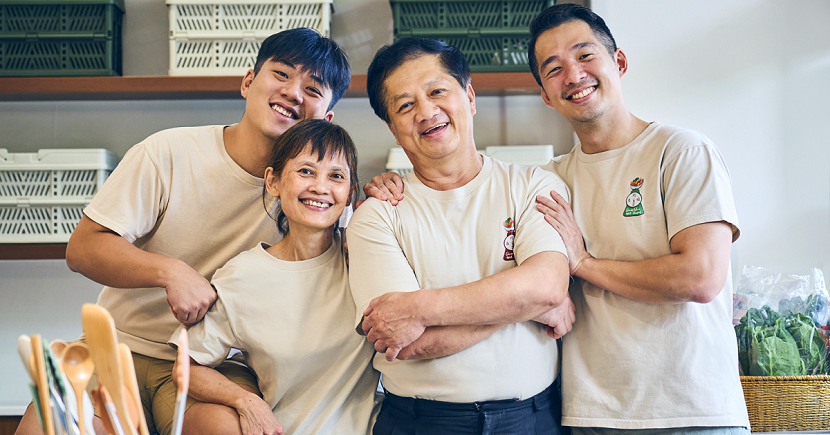
While business was sluggish at first, they realised one thing: Customers were willing to buy fresh ingredients online. To cater to that demand, they created a simple website which would eventually set about reinventing the age-old concept of a wet market.
Enhancing digital marketing capabilities
The business’ successful pivot was driven by the family and team of 33 staff, as well as its partnership with Enterprise Singapore (EnterpriseSG).
To reach new customers and bring the freshest groceries to them, Mr Neo and his brother Jun Rui, 29, have been working closely with EnterpriseSG to explore various programmes as they sought opportunities for growth. One of the key initiatives they tapped into was the Digital Practitioner Programme (DPP), which they joined in 2023.
A collaboration between Google and EnterpriseSG, the programme was designed to boost the digital marketing capabilities of small and medium-sized enterprises (SMEs).
“Before this, we were running ads on Google and Facebook without proper training, so our spending wasn’t efficient,” says Mr Neo. “The programme taught us to explore additional tools beyond Google search ads, such as YouTube video ads which can reach people in different ways.”
Through the DPP, the team improved its online marketing strategy, resulting in a 48 per cent increase in website visits within five months.
Reflecting on the support the company has received so far, Mr Neo acknowledges that EnterpriseSG’s programmes have been invaluable in helping it evolve as a brand.
“There are many channels available that provide information on its grants, upgrading courses, learning journeys and sharing sessions,” he says. “These resources are useful for businesses that are looking to improve and adapt, like ours.”
They have already seen their efforts pay off. “When we first started in 2020, the online business contributed to 15 per cent of our total revenue. Today, it makes up between 40 and 50 per cent,” says Mr Neo. “Despite closing some wet market stalls in the last few years, our overall revenue has increased, thanks to online sales.”
The online business now serves some 500 households daily. Besides ordering fresh meat and other produce on Quan Shui Wet Market's website, customers can visit its air-conditioned store at Tagore Lane, or shop at the business’ eight wet market stalls across the island.
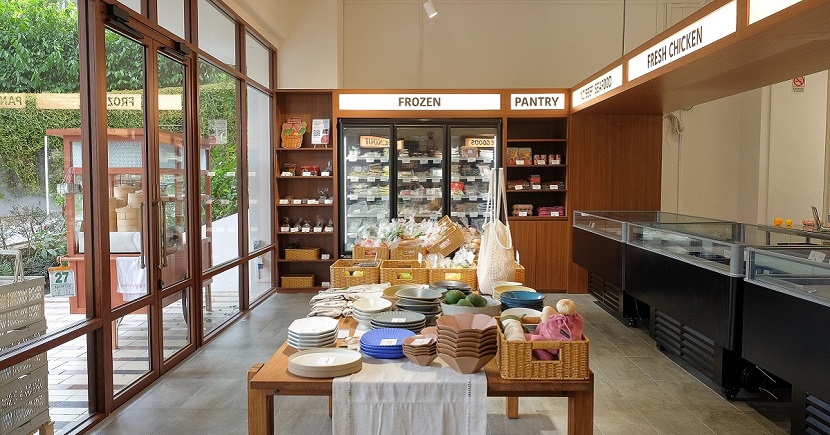
The brand's journey from a wet market stall to an omni-channel retail operation shows how digital transformation can help companies thrive.
With its expanding online presence and integrated strategy for selling fresh pork and other wet market goods, its revenue increased 25 per cent from 2021 to 2024. Moving forward, the company is projecting 20 per cent growth year over year.
Modernising a family business
The Neo family has been selling fresh pork under the name Quan Shui Fresh Pork since 1968, when Mr Neo’s maternal grandfather Oh Quan Shui sold pork along Yio Chu Kang Road, just off the Lorong Hablor kampung.
In the 1980s, he set his first permanent wet market stall in Ang Mo Kio, where his daughter Oh Siew Guat, Mr Neo’s mother, helped out.
Mr Neo’s parents later took over the business, expanding to 15 wet market stalls by the 2000s.
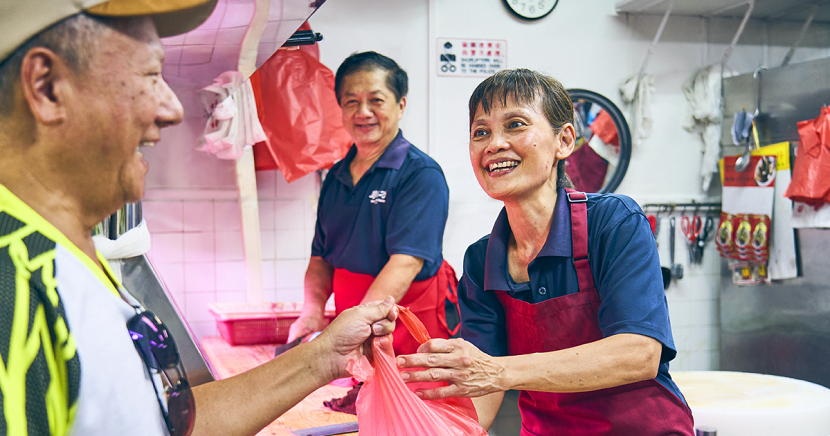
Today, two generations of the family run the business. Mr Neo’s parents manage the remaining eight traditional wet market stalls, while he and Jun Rui spearhead the company’s transformation, overseeing the online business and flagship store at Tagore Lane.
While Mr Neo left his full-time teaching job to work with the family business in 2022, Jun Rui was already handling the company’s operations, having joined in 2019 fresh out of university.
“My brother has always been involved in the business. He knew that his path was to help the family. During the school holidays, he would be interning or working part-time at the company,” says Mr Neo.
Jun Rui, he adds, is also a trained butcher, having learnt every aspect of the trade from the ground-up.
“The original plan was for him to take over the wet market operations and then lead the business.”
However, things took a turn when Mr Neo saw his parents struggling to keep things afloat during the pandemic.
The former secondary school math and social studies teacher says: “Even though my passion was teaching, as the eldest child, I felt a duty to leave my job to help my parents and brother.
“When I joined, we thought it was best to divide the workload. My brother is very confident and comfortable with operations, so I left that to him and my parents. I handle business development, which includes sourcing for new partners and products, as well as considering how to integrate it with the whole wet market concept.”
Conducting market research to reach new customers
As pandemic restrictions eased, the Neo brothers knew they needed to attract younger Singaporeans who were less familiar with wet markets.
To understand how to reach these new customers, they conducted a customer insights study with the help of a consultancy. Through the project, which was supported by EnterpriseSG’s Enterprise Development Grant, they learnt about customer journey mapping and saw how this could help them differentiate themselves from supermarket chains.
The project, which included surveys, face-to-face interviews and mystery shopping, helped them narrow down their target customer profile.
“One key customer profile we identified is what we call ‘the novice cook’,” says Mr Neo. “These customers are eager to cook but may lack time and skills. So, we created our all-in-one recipe kits with ingredients, marinades and guides.”
This is why every product at the modern wet market store has a QR code label that leads customers to useful information on the company website, such as serving suggestions and cooking instructions. The team also creates social media videos to bring these recipes to life.
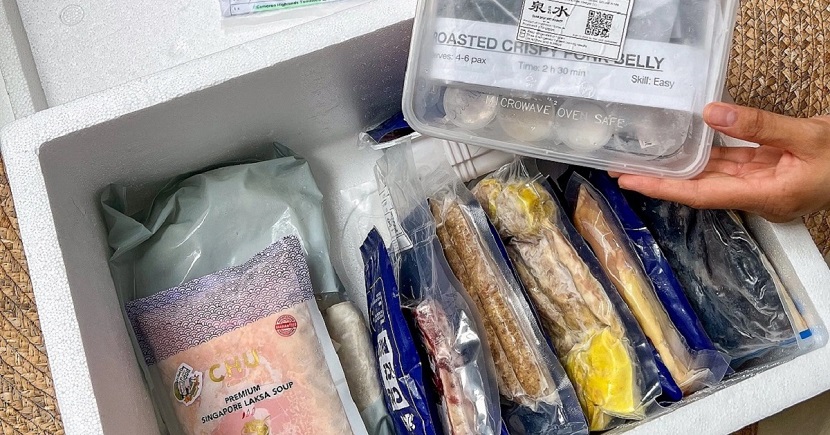
To further enhance its operations, the Neos looked to young talent for fresh perspectives. Through EnterpriseSG’s connections, the company was introduced to Singapore Polytechnic’s Developing Enterprise Learning Through Action (DELTA) module in 2023, collaborating with Year 2 business administration students to improve operations.
As one of six heartland enterprises selected for this initiative, Mr Neo says they could explore and test some of the ideas they did not have time to pursue.
One significant challenge the business faced was consolidating daily orders from multiple e-commerce platforms – its website, Shopee and Grab – by 10pm every evening.
From manually compiling data from different applications to creating separate summaries for each platform, this process was time-consuming and prone to human error.
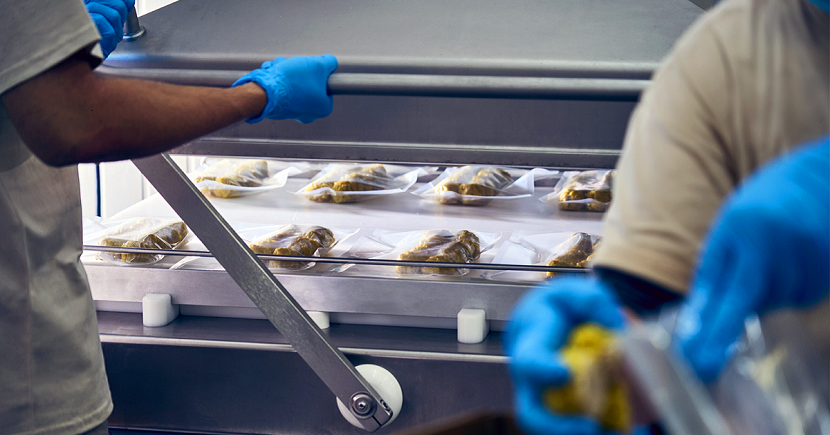
“The students developed an Excel template that automatically pulls in the data from various orders,” says Mr Neo. “Now our team takes 10 minutes instead of one hour to consolidate each day’s orders.”
Helping neighbourhood businesses transform
Heartland businesses now benefit from support to enhance their digital capabilities, upgrade retail spaces and improve customer engagement at different stages of their growth journey.
Driven by Enterprise Singapore and partners such as Heartland Enterprise Centre Singapore, these initiatives are part of the Our Heartlands 2025 vision to help businesses stay relevant and enliven neighbourhoods.
- Innovation and growth
Opportunities to participate in the Heartland Innovation Challenge and Heartland Innovation and Transformation Programme, including access to retail kiosks at the Sprout@AMK (Ang Mo Kio) innovation hub. - Community engagement
Support for ground-up initiatives by merchants through the Heartland Enterprise Placemaking Grant, to create community activities and foster vibrancy in heartland precincts through events and festivals. - Digital transformation
Help for businesses to upgrade digital and manpower capabilities, leveraging e-payment solutions and digital tools. - Capability building
Advice on visual merchandising, such as ways to transform shopfronts, optimise space, improve product placement and enhance storefront marketing, and training in areas including service excellence and financial management.
Preserving the community spirit
The project also focused on reinforcing the community spirit of traditional wet markets while integrating modern elements into Quan Shui Wet Market’s business model. One outcome was the creation of a herbs and spice garden outside the company’s Tagore Lane flagship store.
Developed with the same group of business administration students from Singapore Polytechnic, this garden – which is still a main feature of the store – also allows customers to freely harvest herbs to spice up their cooking.
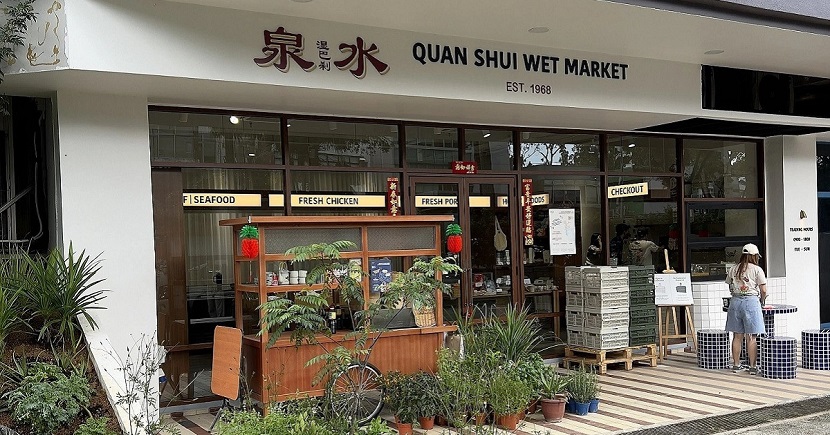
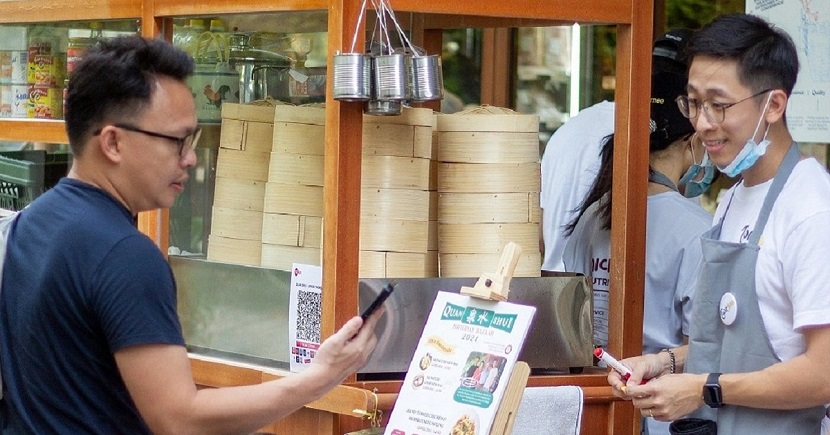
Looking ahead, the family intends to open more modern wet market stores across Singapore in the next five years.
“With this, we’re hoping to better serve Singaporeans,” adds Mr Neo.
Amid the ongoing experimentation and innovation, he has not forgotten the principles of the business since 1968 – the freshness of food and the human touch.
“Whatever you receive today, it’s as though you bought it in person,” says Mr Neo, stressing how the company values the quality of its produce.
“We also readily support customers on their inquiries via WhatsApp,” he adds. Questions can include how to store or cook foods, and customers can even put in special requests to the butchers for specific cuts.
“We could have easily gone with an artificial intelligence chatbot, but we haven’t done so,” says Mr Neo. “To have a human being respond… it’s about offering a personal touch."
This is part of a series showcasing how Enterprise Singapore empowers home-grown businesses in their defining moments of growth, helping them transform, innovate and go global. Find out more here.

